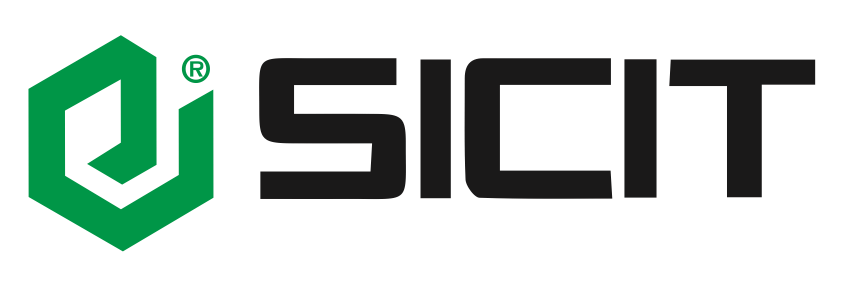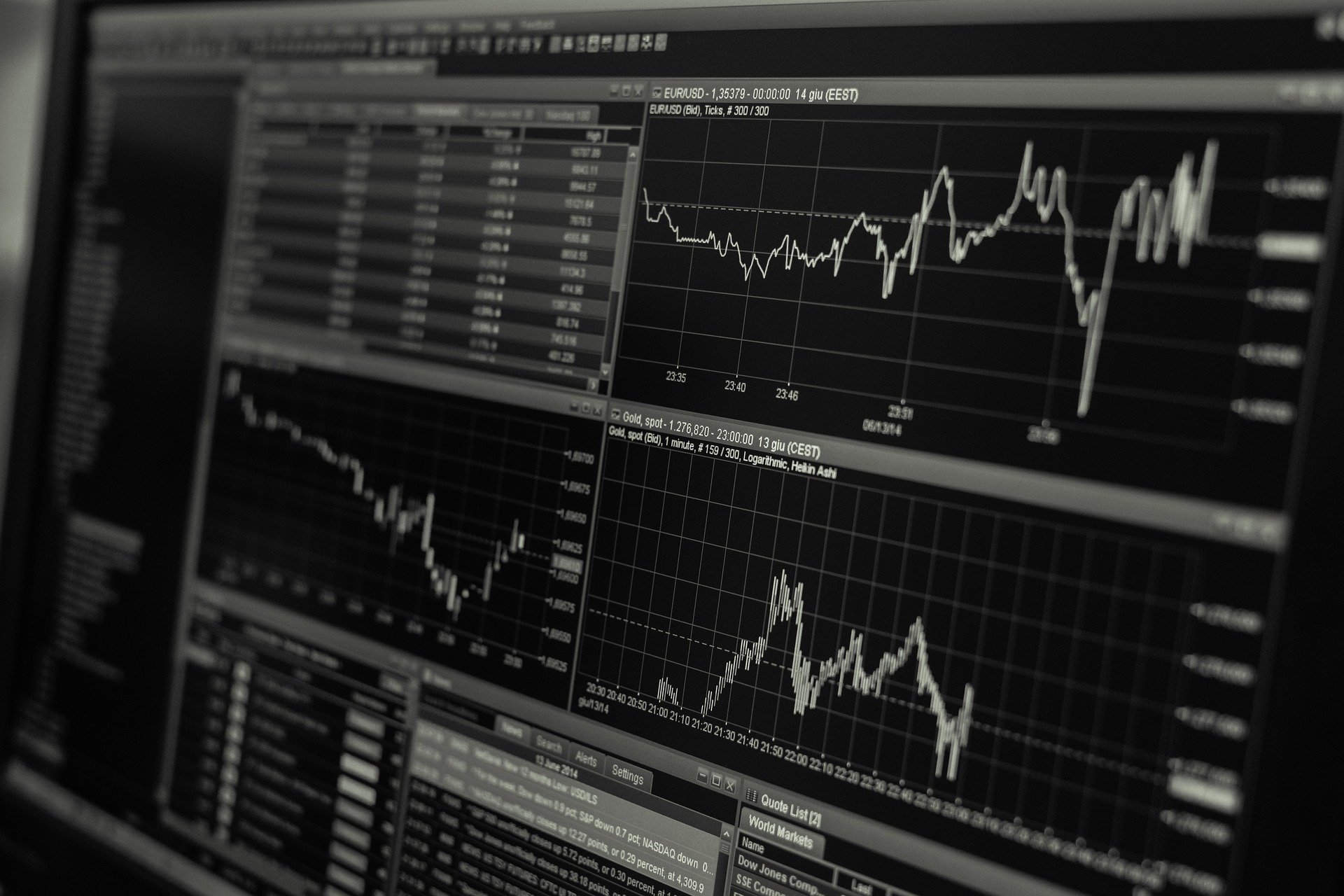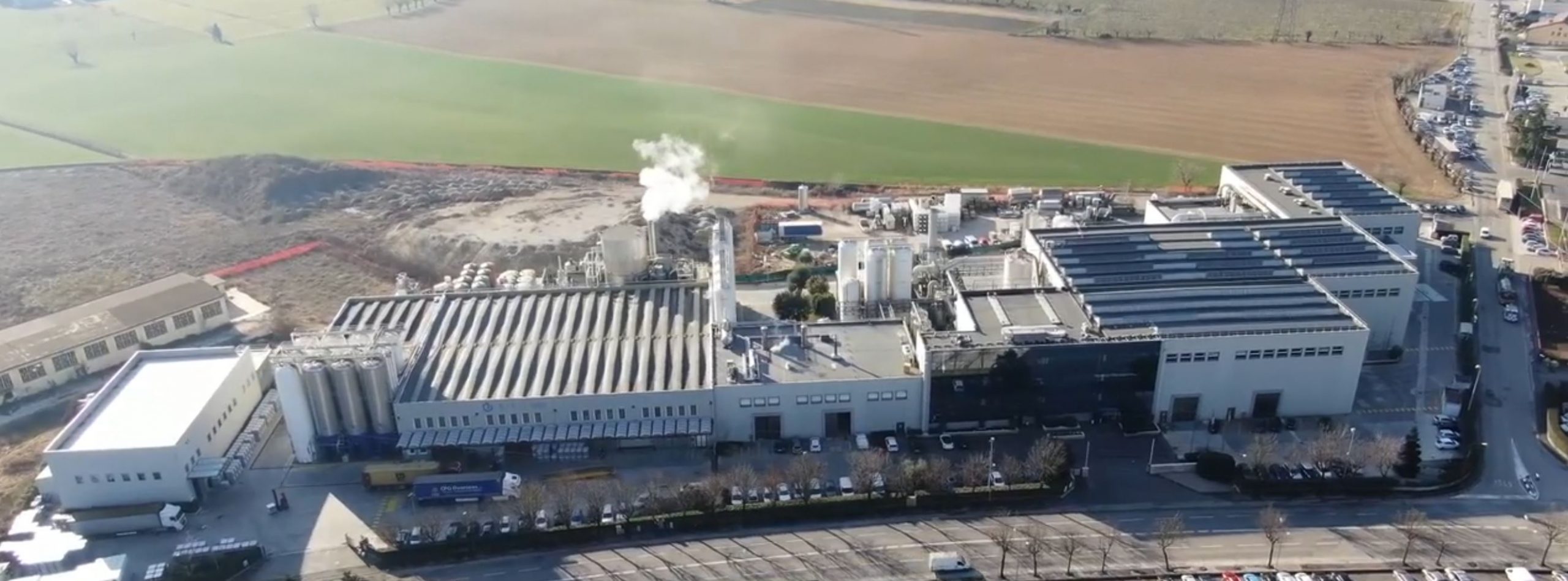- Consolidated revenues of approx. € 63.2 million (approx. € 56.7 million in 2019, +11.5%)
- Adjusted consolidated EBITDA of approx. € 24.1 million and equal to 38.1% of revenues (€ 21.1 million in 2019, +14%)
- Adjusted consolidated net profit of approx. € 14.6 million (€ 12.6 million in 2019, +16.0%)
- Consolidated NFP/available funds at 31 December 2020 of approx. € 20.5 million (€ 29.3 million at 31 December 2019)
- Dividend proposal of € 0.55 per share
SICIT Group, listed on the Italian Equities Market (MTA – STAR segment), announces that the Board of Directors, which met today, reviewed and approved the consolidated financial report at 31 December 2020.
Massimo Neresini, CEO of SICIT Group, said: “The double-digit growth in revenues, EBITDA and net profit, in a year marked by the global pandemic, makes us extremely proud. On the one hand, it confirms the Company’s resilience and, on the other, the solidity of the path undertaken to accelerate the development and the international expansion. These exceptional results are the fruit of the work of all the people part of the Group, who have reacted promptly to the many challenges that have characterised twelve unique months, managing just fine the 60th year of the Company’s history. SICIT is a healthy, profitable company with excellent margins that is increasingly focused on the creation of value as a whole: shareholders, stakeholders, but also and above all the territory and the community of which it is part. In 2020 we were able to achieve extraordinary results and translisting to the MTA (STAR segment), continuing our important investment plan, making progress towards setting up our first production plant in China and strengthening our commitment to sustainability. Despite the many unknowns, the long-term choices we have made allow us to look forward to 2021 with great confidence“.
Consolidated revenues
In 2019, SICIT’s revenues reached € 63.2 million, an increase of € 6.5 million (+11.5%) compared to 2019 (€ 56.7 million). The slightly negative exchange rate effect amounted to approx. € -0.1 million (-0.1%).
This increase was mainly due by the growth of products for agriculture (+ € 7.3 million, +23.6%), which continues to show a strong demand, and animal fat for the production of biofuels (+8.8%). Retardants for the plaster industry confirmed a slowdown (- € 1.3 million, -8.3%), mainly due to the effects of the COVID-19 emergency on the global construction market and the temporary closure of some customers (gypsum industries) especially in APAC. Finally, revenues from the withdrawals of animal by-product and tanning waste services, compared to 2019 (+3.6%), marked an increase, due to the different mix of products processed (animal hair was substantially not processed in 2019), partially offset by the decrease in average prices charged for the treatment of other waste.
Growth concerned almost all geographical areas: from Europe (including Italy, +7.6%; of which Italy +14.4%, and other countries in Europe +3.0%), to APAC (+19.4%) and LATAM (+39.9%). North America (mainly represented by plaster retardants, -1.6%) and the Rest of the World (Middle East and Africa, -1.9%) bucked the trend slightly.
Growth in Europe and APAC was mainly driven by agricultural products, partially offset by the drop in retardants for plaster. In LATAM, results were positive both for biostimulant products and, in countertrend to other geographical areas, also for retardant products.
Adjusted consolidated EBITDA
Adjusted consolidated EBITDA amounted to € 24.1 million at 31 December 2020 (38.1% of revenues), up of € 3 million (+14.0%) compared to FY 2019 (€ 21.1 million, 37.3% of revenues).
The increase in absolute terms is mainly due to the growth in revenues and the related industrial margin, partially offset by higher fixed costs related to the STAR translisting and the adjustment of the post-listing governance structure, as well as by higher production costs (employees and amortisations) partly incurred to ensure business continuity to customers even during the lockdown, as well as by a less favourable product mix, partially offset by the positive price effect in the fat business.
Adjusted EBITDA increased as a percentage of revenue (38.1%) compared to FY 2019 (37.3%), mainly due to higher sales volumes that allowed better absorption of fixed costs and to production efficiency activities (continued also in 2020) that allowed to offset the slight increase in some costs mentioned above.
The slight decrease in adjusted EBITDA as a % of revenue compared to the third quarter of 2020 (38.7%) is mainly due to
- higher maintenance, overtime and extra costs in the fourth quarter of 2020 to address higher volumes of materials processed; and
- the recording of higher performance bonuses for 2020 compared to the estimates made in the third quarter, following the targets exceeding set by the incentive remuneration plans.
Adjusted EBITDA does not include non-recurring costs of € 2.1 million at 31 December 2020, mainly due to non-recurring taxes for the translisting from the AIM Italia to the STAR (€ 1.2 million, of which € 1.0 million for advice services and € 0.2 million for non-recurring bonuses to employees and directors), sanitation and safety costs following the COVID-19-related health crisis (€ 0.1 million) and non-recurring donations to health facilities linked to COVID-19 (€ 0.6 million). In 2019, non-recurring costs amounted to € 11 million, of which € 0.8 million for non-recurring advice services for the merger of SICIT 2000 S.p.A. into SprintItaly S.p.A. and listing on AIM Italia, and € 10.2 million as listing costs from the record of the merger of SICIT 2000 S.p.A. into SprintItaly S.p.A. as a “reverse acquisition” operation, in compliance with IFRS 2 (non-monetary imputed costs and not relevant for tax purposes).
Adjusted consolidated net profit
Adjusted consolidated net profit increased substantially in line with adjusted EBITDA (+ € 2 million, +16.0%) and amounted to € 14.6 million at 31 December 2020 (€ 12.6 million in FY 2019).
Adjusted net profit does not include, in addition to the tax effects related to non-recurring costs of € 2.1 million described in the previous paragraph, certain tax benefits recorded in fiscal year 2020 and related to:
- net proceeds of € 2.8 million of exemption of the merger deficit following the merger by incorporation with SprintItaly S.p.A and
- proceeds of € 3.8 million for the “Patent Box” tax benefit with reference to the fiscal years 2015-2019.
With regard to the goodwill arising from the merger deficit, in the interim financial report at 30 June 2020 and in the additional periodic information at 30 September 2020, among the three alternative ways of recording provided by the document “Accounting treatment of the substitute tax for exemption of goodwill, pursuant to Decree-Law No. 185 of 29 November 2008, Art. 15, par. 10 (converted into Law No. 2 of 28 January 2009) for entities that prepare their financial statements in accordance with IAS/IFRS”, issued by the Organismo Italiano di Contabilità (February 2009), the accounting alternative was chosen, which suspended both the cost of the substitute tax paid and the overall tax benefit, postponing the net positive financial effect of € 2.8 million (approx. €0.6 million per year) to the following five years.
For the purposes of preparing the annual financial statements at 31 December 2020, further technical investigations were carried out, at the end of which it was decided to apply the interpretation most in line with IAS 12 “Income Taxes”, which provides for the recognition in the income statement of the net tax benefit for the year of exemption.
In both financial statements and consolidated financial report at 31 December 2020, the substitute tax paid of € 3.7 million (among current taxes) and the expected tax benefit of € 6.5 million (among deferred tax assets) were recorded in the Income Statement, with a net positive economic effect of € 2.8 million. The deferred tax assets recorded at 31 December 2020 will be reversed in the next five years from 2021 to 2025, consistently with the tax benefit arising from the higher tax-deductible amortisations in those years.
Consolidated NFP/available funds
Consolidated NFP/available funds amounted to € 20.5 million at 31 December 2020 (€ 29.3 million at 31 December 2019). Operating cash flows in the 2020 financial year were positive for € 22.7 million before outflows for net investments of € 13.8 million (€ 15.9 million of investments net of the change in investment payables of € 2.1 million), non-recurring costs of € 2.1 million and income tax for € 5.2 million – of which € 3.7 million for the substitute tax on the greater carrying amount allocated to the Plastretard trademark and goodwill, arising from the merger deficit following the merger by incorporation of SICIT 2000 S.p.A. into SprintItaly S.p.A.. SICIT also paid dividends worth about € 8.8 million and purchased treasury shares for a total value of about € 1.6 million.
Investments
Similarly to previous years, in FY 2020, the Group continued its investment activities in order to improve processes and products and expand production capacity. The main investments related to:
- Expanding the agronomic, chemical and quality control laboratories at the Arzignano site, to improve and strengthen the research and development of new products, and quality control together with its customers
- Expanding the storage tanks and the new warehouses at the Arzignano site, to ensure greater flexibility and effectiveness in responding to growing customer demand
- The construction of a new warehouse at the Arzignano site
- Completing the plant for the production of protein hydrolysate from animal hair treatment
- Completing the new animal fat refining and re-esterification plant, to obtain high-quality biofuel
- The start of construction of the new plant for the production of biostimulants in granules
COVID-19 update
The first half of 2020 was characterized by the spread of the health emergency situation linked to the COVID-19 pandemic (so-called Coronavirus) and the implementation by Governments and Authorities of restrictive measures to deal with it.
During this period SICIT Group and its subsidiary SICIT Chemitech continued to operate as their respective activities were not among those covered by the restrictive measures. The companies also implemented protocols and measures to protect workers from the risk of infection at their production plants, in line with regulatory guidelines, as well as recourse to work from home for non-essential functions.
As far as the supply of raw materials is concerned, in the period between the end of March and the beginning of May 2020, the tanning companies in the Vicenza district (the main suppliers of raw input material for the Group) initially stopped the supply of leather processing residues. From mid-April 2020 onwards, at the same time as the gradual resumption of leather processing, the disposal of raw input materials has gradually resumed, albeit for reduced volumes compared to those recorded during the periods prior to the COVID-19 emergency.
In order to meet the need for input raw materials suitable to meet the growing demand of clients, the Company implemented the following strategies during the period: (i) recourse to new suppliers, including foreign ones, (ii) recourse to alternative types of input raw materials at the Chiampo plant, even if economically less advantageous, and (iii) increase in the production of protein hydrolysate from animal hair at the Arzignano plant compared to what was originally planned.
As far as production is concerned, the Group’s production activities continued also thanks to the adaptation of its production procedures to the new safety protocols introduced from time to time by government decrees. However, the temporary interruptions in the supply of raw materials led to the temporary interruption of production of basic semi-finished products (protein hydrolysates). Thanks to the use of semi-finished products’ stocks, SICIT has continued the production of finished products (biostimulants and retardants) thus ensuring full operation and supply capacity to its clients.
On the revenue side, there were no cancellations of orders by clients, requests to shift deliveries or delivery difficulties that negatively affected revenues from products for agriculture. However, the temporary closure of some gypsum factories in the second quarter had an impact on revenues from plaster retardants, while the drop in input raw material volumes collected from tanneries in Q2 2020 had a negative impact both on fat production volumes and related revenues.
The Group did not resort to payroll subsidies (so called “Cassa Integrazione Guadagni Ordinaria” or “Cassa Integrazione Guadagni in deroga”) and all employees remained fully operational.
With regard to the outlook for 2021, sustained demand is expected for biostimulants, due to the increasing focus on the sustainability of production systems and, similarly to 2020, COVID-19 could have localised and, overall, minor impacts, especially on the distribution chain of technical means.
In the plaster retardants sector, demand could remain volatile, especially in the first half of the year, due to the impact of COVID-19 on construction activities and production facilities; in this market context, characterised by weak demand, an increase in competitive pressure can be observed. A growth trend was seen in the renovation building sector and in particular in the bricolage/DIY sector, where the Company, however, has a marginal presence as its retardant products are used more in construction than in renovation. However, it is positive that the construction sector, and therefore the Company’s customers, are benefiting from a growth trend in the DIY sector that compensates, at least in part, for the difficulties met in heavy building construction.
Dividend proposal
While approving the Consolidated Financial Report at 31 December 2020, the Board of Directors also approved to propose to the Shareholders’ Meeting a gross dividend of a total of € 0.55 per share, through a full distribution of the profit for the year, within the limits of the law, and for the exceeding part using the Company’s available reserves.
It should be noted that, compatibly with the timing of the Company’s Shareholders’ Meeting (as described below), this dividend is expected to have 10 May 2021 as Detachment Date of the third coupon, 11 May 2021 as Record Date and 12 May 2021 as Payment Date.











